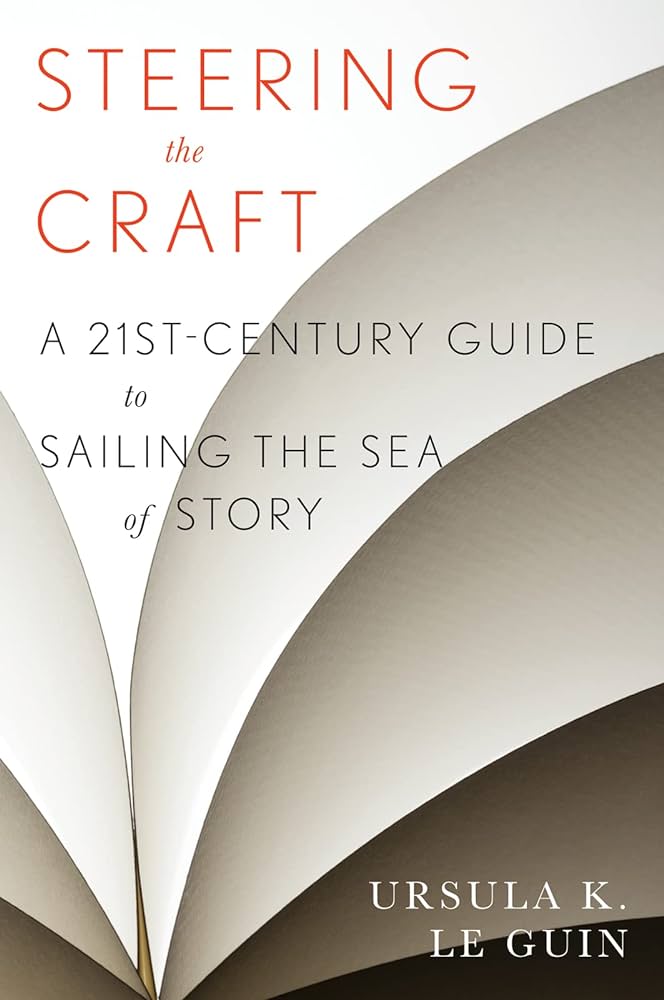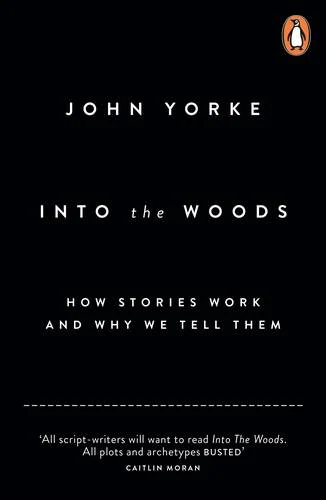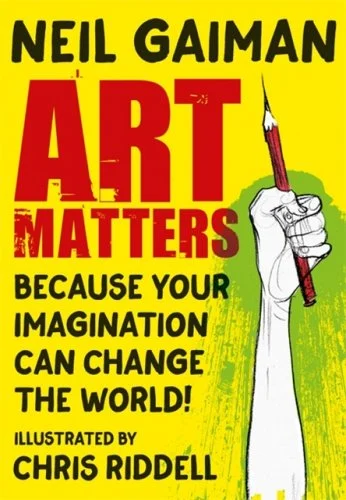Books
Three Books on Writing All Writers Should Read
There’s a lot of writing advice out there. You can find opinions on the writing craft in online forums, writing blogs, manuals, podcasts, university courses, and the good intentions of strangers. Go knock on your neighbour’s door and tell her you’re an aspiring writer — I bet you a chocolate bar she’ll have some sage advice for you.
So it’s tough to know where to start and who to trust when you’re looking to deepen your creative skill set. Here are the three writing craft books I recommend to everyone I know, and return to again and again.
Steering the Craft: A 21st-Century Guide to Sailing the Sea of Story by Ursula K. Le Guin
Prose can’t rhyme and chime and repeat a beat as poetry can, or if it does it had better be subtler about it than the first half of this sentence. The rhythms of prose — and repetition is the central means of achieving rhythm — are usually hidden or obscure, not obvious. They may be long and large, involving the whole shape of the story, the whole course of events in a novel; so large they’re hard to see, like the shape of the mountains when you’re driving on a mountain road. But the mountains are there.

It’s astonishing how many beginning writers go looking for tips on developing the perfect villain or planning the perfect plot twist or finding ARC reviews for their yet-unwritten book without actually learning how to write.
Schools, for some unfathomable reason, seem to be phasing out basic grammar, syntax, and narrative technique. This means that if you’re below a certain age bracket, you may not have been taught skills that previous generations took for granted.
Fantasy and Science-Fiction author Ursula K. Le Guin’s Steering the Craft (first published in 1998 and updated in 2015) is the best basic “How to Write” book I’ve seen. It covers everything in the writer’s toolkit from verbs and adverbs to narrative point of view and how to structure a sentence for greatest impact.
Into the Woods: How Stories Work and Why We Tell Them by John Yorke
When we remember that all archetypal stories are journeys towards completion — voyages from darkness to light — and involve the reconciliation of opposites, it’s not hard to detect the connection between psychological and story theory. In our own paradigm, a flawed, conflicted hero goes on a journey to become whole, integrating the lessons he has learned from others on the way. Successful happy endings, both in fiction and in psychology, involve the individual resolving conflicts and learning to integrate and balance opposing forces. Just as all stories seek to resolve order from chaos, man seeks to still the raging conflict within.

I don’t know about you, but I’m absolutely fascinated by the psychology and neurology of storytelling, and the reason why stories continue to have such power over us.
Into the Woods is primarily a book for screenwriters, but it’s a useful and compelling read for writers of all mediums. Yorke explores the Big Question that other craft manuals don’t — why these narrative shapes work so well, and why they’re coded into our basic human instinct.
Into the Woods takes a deep-dive look at the three-act structure and how each of its individual components fit together. It’s one of the most essential books on writing for anyone wanting to develop and understand a well-structured story.
Art Matters by Neil Gaiman, guest starring illustrations by Chris Riddell
You’re finding out something as you read that will be vitally important for making your way in the world. And it’s this: The world doesn’t have to be like this. Things can be different. Fiction builds empathy. Fiction is something you build up from twenty-six letters and a handful of punctuation marks, and you, and you alone, using your imagination, create a world and people it and look out through other eyes. You’re being someone else, and when you return to your own world, you’re going to be slightly changed.

Part political manifesto, part guide to life, and part celebration of the written word, this little pocketbook isn’t so much a writing manual as a reminder to live as an artist as fully and beautifully as you can. Art Matters is written from the perspective of a prominent author, but could be just as applicable to artists working in any medium.
Gaiman talks about his journey to becoming the writer he is today, and why he thinks creating stories is so important — both for readers and for the writers themselves. He reminds us that in times of crisis, acts of creation can be the thing that saves us. When you’re lying in bed staring at the ceiling and trying to remember the point of it all, pick up this book.
There are many, many more books on writing and the writing life out there that are just as wonderful. But if you’re setting out on a journey and travelling light, these three reads will prepare you for where you need to go.
Note: All purchase links in this post are affiliate links through BookShop.org, and Novlr may earn a small commission – every purchase supports independent bookstores.